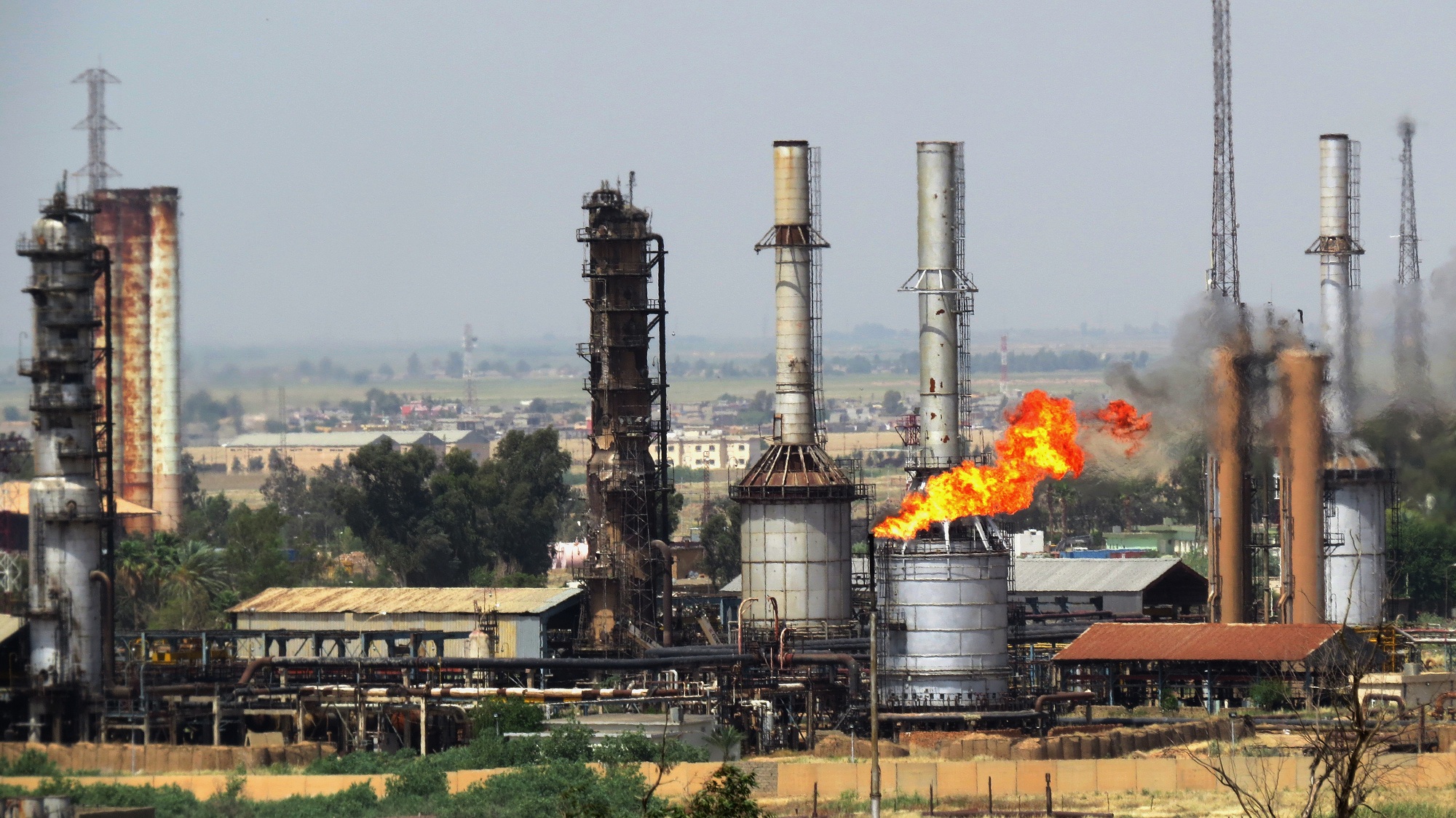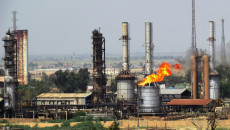Crude oil exports from the northern oil-rich city of Kirkuk via Turkish port of Ceyhan has dropped during the month of February by about one million barrels, with revenues of nearly 135 million dollars, according to Iraqi ministry oil per figures of state-run State Oil Marketing Organization SOMO.
Iraq’s federal crude exports in February has touched 93 million barrels of crude oil, 3.5% raise from earlier month and the revenues exceeded eight billion dollars, excluding Iraqi Kurdistan Region IKR. The average price per barrel of Iraqi crude oil in that month was more than $92.
The production capacity of Iraqi oil fields has soared to 99.3 million barrels in January for 8.27 billion as each barrel of crude oil was marketed for USD83 compared to 98.5 in December 2021 for $7.2 billion.
Federal oil exports reached 3.3 million b/d in February, the ministry data showed, from 3.202 million b/d in January though nearly 11% of Iraq's output is offline due to maintenance and protest, an official from SOMO told S&P Global Commodity Insights.
Iraq, OPEC's second-biggest producer, has a quota of 4.370 million b/d for March compared to 4.325 million b/d in February, up from 4.281 million b/d in January.
In a statement, the ministry stated that crude oil exports from Kirkuk fields to the Turkish port of Ceyhan, on the Mediterranean coast, in February were about 1,5 barrels, with revenues of nearly $135 million.
This comes while the volume of exports in January of this year was two 2.5 barrels, with revenues of more than 200 million dollars from 2.7m barrels in December for 195 million dollars.
There are five major oil producing fields in Kirkuk, Avana, Bai Hassan, Qubbet Baba, Jambour and Khabaza, which are supervised by the Iraqi government's North Oil Company.
Iraq used to export more than 100 million barrels monthly, but the OPEC Plus agreement to cut oil production and a dip in oil prices due to the COVID-19 pandemic have merged to cause a decline in the country's oil exports.
Kirkuk hit peak of its 2021 production in February when it has pumped 3,8 million barrels for $213M, the highest production capacity in 2021 while the lowest was in November when it has dropped to two million barrels only with 150 million USD revenues.
Early 2020, Kirkuk was exporting only 1,1 million barrels exported to the Turkish Mediterranean port of Ceyhan by a pipeline crossing Iraqi Kurdistan.
Kirkuk, Iraq’s second largest reserves, located 238 kilometers north of Baghdad, is an ethnically mixed province for 1,7 million Kurds, Arabs, and Turkmens. It has long been at the center of disputes between Baghdad and the Erbil.
Iraq’s oil reserves are considered the world's fifth-largest with 140 billion barrels.






